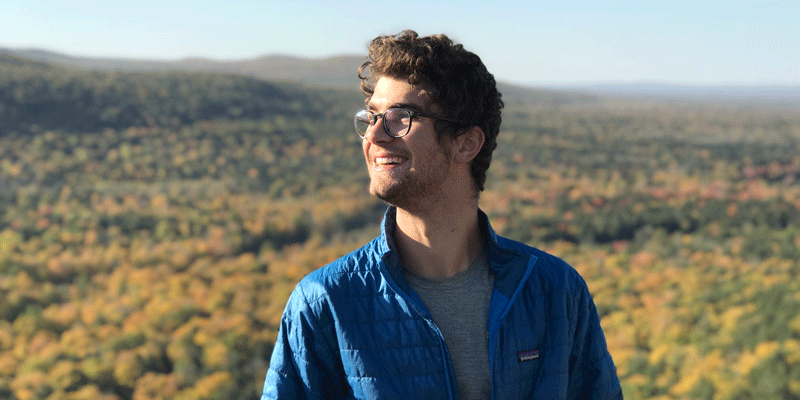This CBS undergraduate loves the science of storytelling.

Name: Nick Minor
Year: Fourth
Major: Ecology, Evolution and Behavior
Why did you want to study EEB?
I’ve been interested in one or another subset of earth’s biodiversity for my entire life. Nothing else has held my interest for as long. So it’s convenient that, in a time of my life when I’m asked to find a career that I’m passionate about and that might make the world a better place, I get to pursue a career as a biodiversity scientist & conservationist through the EEB Major. It’s a privilege I’m grateful for every day.
What are your career aspirations?
My aspiration for most of my life has been to become a biologist, and to focus on the organismal level (as opposed to on cells, biochemistry, etc.). I’m fascinated by the story of how biodiversity came to be, so there’s probably no more exciting career for me than one spent learning things no one has learned before about that story (along with leveraging these lessons to make our relationship with the rest of biodiversity more sustainable!).
You have an interest in science communication. What drives this interest for you?
I think it’s because science communication combines two of my favorite things that people do: figuring out how the universe works and telling stories. The vast amount people have managed to learn—and continue to learn—with scientific approaches to inquiry is incredibly inspiring to me. That people are inherently curious and have designed such sophisticated ways to discern the truth is one of the major sources of optimism in my life, and that’s a story I want to tell as much as possible. I also think it’s exciting to talk about what we don’t know, and ultimately that’s what the adventure of science is all about.
You also have an interest in photography and multimedia storytelling (on Instagram at @NRMbirds). What do you like about using these mediums in science communication?
Using photography and other media, you have the power to show people how beautiful and meaningful a given moment or sequence of events actually is. You can focus viewers on a nuance they might never have noticed, a fact they’ve never learned, or a perspective that never occurred to them. As a biodiversity and environmental nerd, this is a pretty crucial capacity right now. The most rewarding thing in it, at least for me, is when it helps viewers see things they weren’t aware of before, and perceive some beauty and newfound meaning in them. If we look for it, we can find a lot of joy and beauty in the world around us—photographers, filmmakers, designers, and many other artists are just trying to distill this experience.